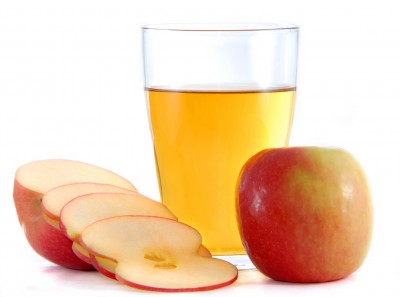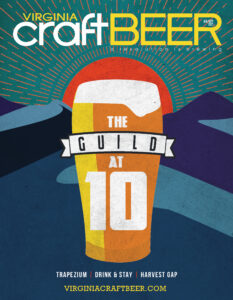By Diane Flynt
Meals often begin with a litany about ingredients—“Are the eggs farm raised? Who grew the strawberries?” Chefs tell us the best taste comes from quality ingredients, grown for flavor. While we know that flavor on the plate begins on the farm, we don’t often think of the beverage in our glass as an agricultural product.
Sean Wilson, owner of Full Steam Brewery in Durham, NC, puts raw materials first with his mission of making “beer with ingredients grown by NC farmers”. He says, “The beer industry is beginning to place more emphasis on the agricultural roots of beer”.
Nowhere are beverage ingredients more significant than in cider. Cider is fermented and, like beer, ranges in style and quality. Macro Cider, like Macro Beer, is made to specifications with the goal of consistency, often with many adjuncts. While the definition of Craft Cider is evolving, most would define Craft Cider as cider fermented from the juice of pressed apples.
If the ingredients are apples, and ingredients matter to flavor, then apple varieties—as well as how these varieties are grown, harvested and pressed—are crucial to cider-making. While fermenting any apple produces alcohol, most apples available in Virginia will disappoint as cider.
Traditional cider apples include bittersweet (low acid/high tannin) and bittersharp (high acid/high tannin) apples. These bitter apples are inedible, and grown solely for the cider market. Apples like Dabinett, Yarlington Mill and Tremlett’s Bitter are the holy grail of cidermakers in search of layered flavors and complexity.
“There is a huge interest in cider and we don’t have cider fruit,” says David Flaherty, Beer and Spirits Director at Hearth and Terroir restaurants in New York and an early champion of craft cider. “There is more character in cider apples.” Serious Eats cider columnist Chris LeHault agrees and applauds the drive for more cider fruit: “Virginian apple growing is currently experiencing a renaissance as more growers plant cider-specific, high-tannin fruit. The high-tannin fruit from these young trees will provide the raw material to produce some of America’s most complex and well-crafted ciders.”
While high tannin cider apples are rare in Virginia, the Commonwealth is home to several “crossover apples”, apples that are suitable for both eating and cider-making. Albemarle Pippin and Winesap apples contribute complex flavor to cider crafted by Old Hill Cider, Blue Bee Cider and Potter’s Craft Cider. Albemarle Ciderworks and Foggy Ridge Cider have mature orchards with cider-worthy varieties like Ashmead’s Kernel, Hewe’s Crabapple and Harrison.
Some pundits say the soul of cider is up for grabs—Macro Cider dominates the market with highly manipulated ciders. Cidermakers with no access to complex apples, often add flavorings. Steve Wood, owner of Farnum Hill Cider in New Hampshire and an outspoken champion of cider fruit is emphatic: “Cidermakers who add ingredients other than apples are excusing a deficiency in their apples. The solution is to grow better cider apples and treat them with respect, not to buy stronger cinnamon, coriander, and aspartame.”
It is clear that ingredients matter not just on the plate, but also in the glass. The next time you reach for cider, drink a glass of Farm Cider, and see if you can taste the difference.
Diane Flynt grows cider apples and makes cider at Foggy Ridge Cider near Floyd, VA. www.foggyridgecider.com



